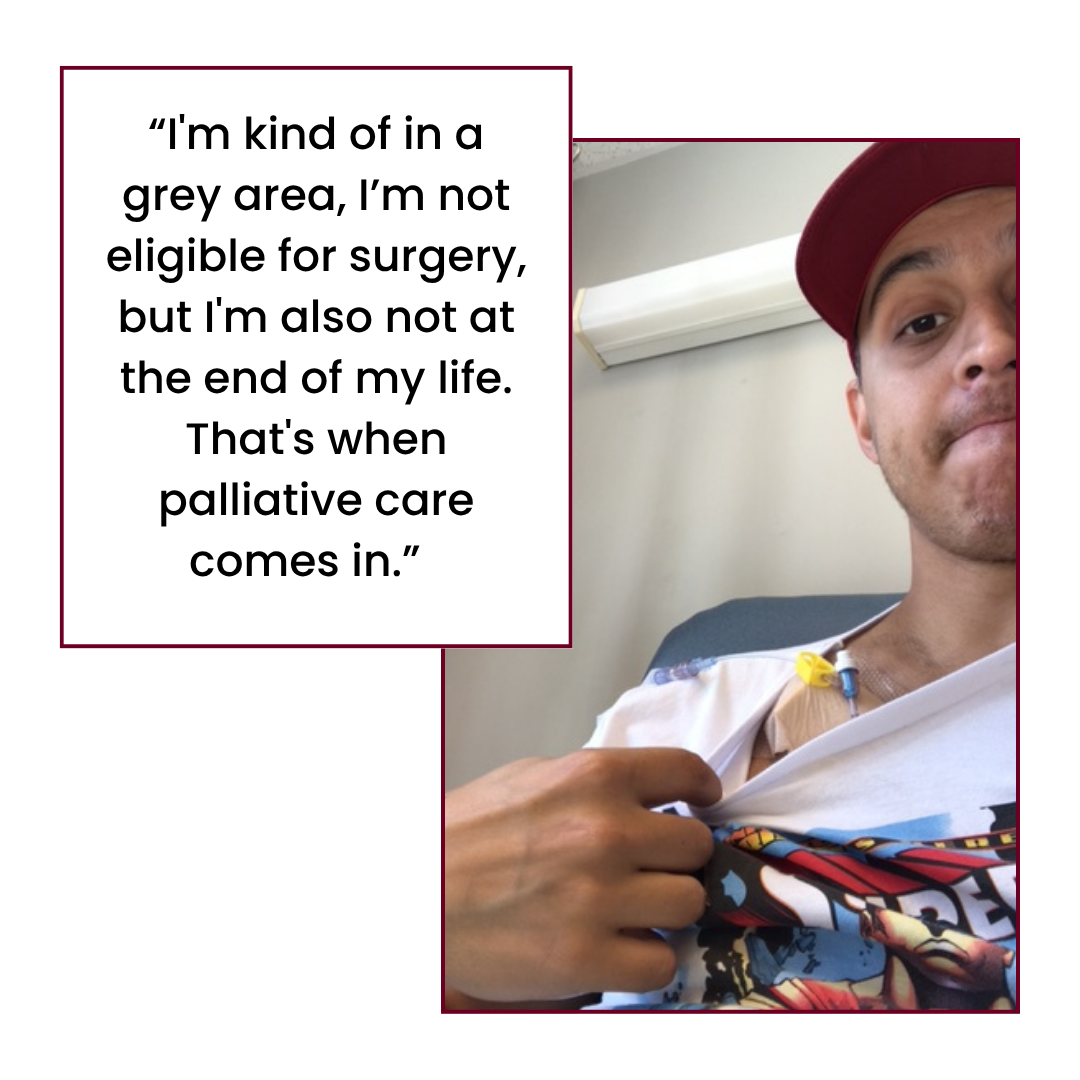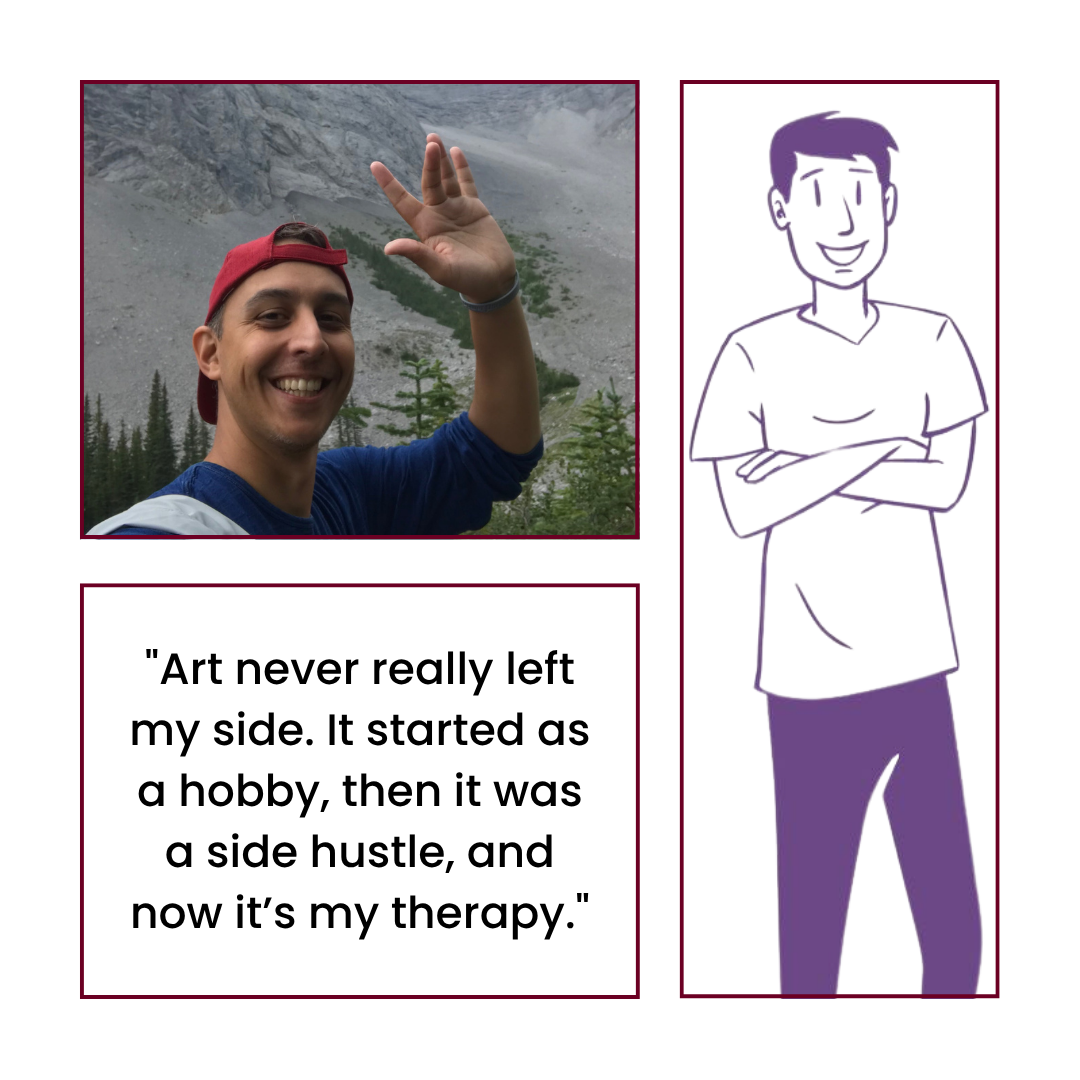Too young for this: How Arthur is redefining what palliative care really means
Arthur Mathias is living with stage III pancreatic cancer. And he’s only 37 years old.
Originally from Brazil, Arthur has been residing in Canada for the past ten years, working as a marine biologist and raising a family with his wife in Edmonton. He always considered himself healthy, he never smoked or drank alcohol. It wasn’t until 2023 that he would begin to experience a persistent stomach ache.
After a round of antibiotics and experimenting with a gluten-free diet, his doctor referred him for a blood test. “My enzymes were through the roof; they thought the issue might be gallstones.” explains Arthur. Still, despite an emergency surgery, the source of his pain remained unclear. “I spent a week in the hospital. I felt like a lab rat.”
What began as a procedure to remove his gallbladder finally revealed the real cause: a mass on his pancreas.

Redefining Palliative Care
Like many patients with pancreatic cancer, Arthur is not eligible for surgery. In the two years since the diagnosis, he has completed over 50 rounds of chemotherapy. His experience reflects what palliative care truly is: care focused on improving quality of life while living with a life-limiting illness. Arthur’s story challenges the outdated belief that palliative care is introduced only when treatment ends.
“Palliative is very a scary word. People don’t understand what it really means,” Arthur explains. “I’m kind of in a grey area, I’m not eligible for surgery, but I’m also not at the end of my life. That’s when palliative care comes in.”
Though often confused with end-of-life healthcare, palliative care is a far more expansive and inclusive approach. It focuses on managing symptoms, reducing suffering, and improving quality of life. For Arthur, that means staying active and engaged in his life, “I still have a long way to go.”

Using Art to Educate
As early onset cases continue to rise, more young families like Arthur’s are forced to change their life plans. Having to step away from this career in the lab was difficult, but it has provided the opportunity to pursue lifelong passion, creating and sharing art.
“Art never really left my side,” he said. This project is helping me put things into chronological order. It started as a hobby, then it was a side hustle, and now it’s my therapy.”
Arthur has started an online comic on Instagram. ‘Hope and Healing’, to document his experience with pancreatic cancer. Available in English, French and Portuguese, the series offers more than personal reflection, it is an educational tool to educate others on the signs and symptoms of the disease.
“If you don’t have a family history or knowledge of the disease, what are the things we should be paying attention to?” says Arthur.
Through both his art and advocacy, Arthur is redefining what it means to live with pancreatic cancer, and helping others see palliative care for what it truly is, living with purpose, creativity, and support.

Recent Comments